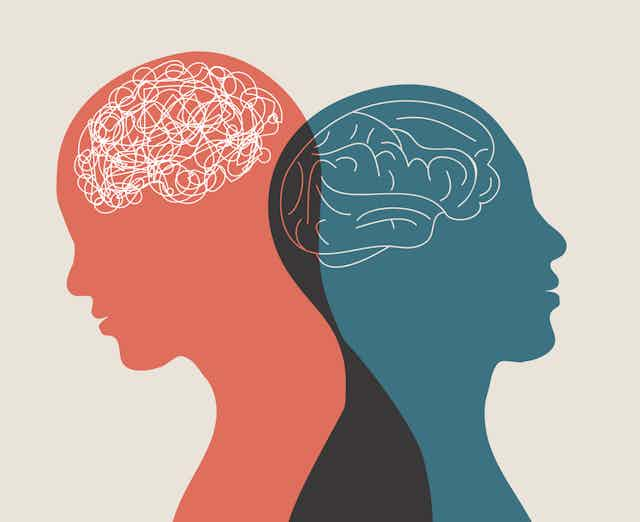Psych Treatment: A Comprehensive Overview to End Results and methods

Cognitive-Behavioral Therapy
Cognitive-Behavioral Therapy (CBT) is an extensively used psychotherapeutic technique that focuses on identifying and changing inefficient thinking and actions patterns. Developed in the 1960s by Aaron T. Beck, CBT combines behavioral and cognitive concepts to attend to various psychological health and wellness issues, consisting of depression, anxiousness, and stress-related disorders. The premise of CBT is that maladaptive ideas add to psychological distress and maladaptive behaviors. By reorganizing these thoughts, individuals can attain considerable improvements in their psychological health and everyday performance.
Strategies such as cognitive restructuring, direct exposure therapy, and skill-building workouts are frequently utilized. Cognitive restructuring involves challenging and modifying adverse idea patterns, while exposure therapy intends to lower concern and stress and anxiety through gradual direct exposure to been afraid things or scenarios.
Evidence-based research study supports the efficiency of CBT for a variety of psychological problems - Best Psychologist in Delhi. Its emphasis on ability purchase and self-help techniques empowers customers to continue progress individually after therapy concludes. The flexibility and efficiency of CBT have actually made it a foundation in contemporary psychotherapeutic technique
Psychodynamic Methods
Rooted in the very early theories of Sigmund Freud, psychodynamic approaches concentrate on exploring the subconscious mind and its influence on habits and emotions. These techniques aim to discover hidden ideas and feelings that may be driving maladaptive actions and mental distress. Central to this technique is the idea of internal dispute, commonly coming from unsettled past experiences, specifically those from childhood.
Therapists utilizing psychodynamic techniques use several vital methods, consisting of totally free organization, where patients are motivated to talk freely to expose subconscious material, and dream analysis, which analyzes the hidden web content of dreams. Additionally, the expedition of transfer and countertransference dynamics within the therapeutic connection is crucial. These interactions can give insights into the person's internal world and relational patterns.
Psychodynamic treatment is usually longer-term contrasted to various other techniques, using a thorough and deep understanding of the person's psyche. Study indicates that it can be especially reliable for complex mental health problems, such as character problems and persistent clinical depression. By fostering self-awareness and emotional insight, psychodynamic treatment looks for to bring subconscious material to consciousness, allowing individuals to achieve lasting and significant modification in their lives.
Humanistic Methods
Building on the foundations laid by psychodynamic approaches, humanistic techniques offer a distinct perspective concentrated on specific possible and self-actualization. Coming from the mid-20th century, these methods prioritize the inherent benefits and development capacity of individuals, emphasizing an alternative view of human experience. Key figures such as Carl Rogers and Abraham Maslow have actually significantly affected this restorative method, which includes methods like client-centered treatment and Gestalt treatment.
Client-centered treatment, established by Rogers, plays an essential function in humanistic techniques. It relies upon the specialist supplying an atmosphere of unconditional favorable regard, empathy, and harmony. This cultivates a risk-free area for customers to discover their feelings and experiences without judgment, assisting in self-discovery and individual growth. The therapist's duty is even more of a facilitator than an authority, encouraging customers to harness their internal resources for recovery.
Gestalt treatment, another essential humanistic technique, stresses present minute awareness and the assimilation of mind and body. By concentrating on the "present moment," customers acquire better insight right into their current feelings and actions. Methods such as role-playing and led visualization are commonly employed to assist customers gain a much deeper understanding of themselves, inevitably resulting in boosted self-awareness and satisfaction.
Integrative Treatments
Integrative therapies represent a synthesis of numerous restorative strategies tailored to meet the special needs of each client. This technique recognizes the complexity of human visite site psychology and the multifaceted nature of mental wellness issues. By incorporating components from different institutions of psychiatric therapy-- such as cognitive-behavioral therapy (CBT), psychodynamic therapy, and humanistic techniques-- integrative treatments supply a more flexible and alternative treatment standard.
Specialists of integrative Recommended Reading therapy examine each customer's specific requirements, signs and symptoms, and personal background to devise a customized treatment plan. This individualized approach enhances the capacity for restorative success by dealing with the origin of mental distress and promoting overall well-being. Techniques could consist of mindfulness workouts, cognitive restructuring, and emotional processing, each selected to target various facets of the customer's problems.
Moreover, integrative treatments stress the restorative connection, seeing the client-therapist bond as a critical part of efficient treatment. This connection fosters a supportive setting where customers really feel risk-free to check out and address their issues. The versatility of integrative therapies makes them appropriate for a broad range of conditions, including anxiousness, clinical depression, injury, and interpersonal troubles, consequently enhancing their applicability and performance in diverse clinical setups.

Gauging Treatment Results
Evaluating the performance of psychiatric therapy is vital for both clinicians and clients to make certain that the therapy is yielding the preferred outcomes. To attain this, different methods and devices are employed to determine therapy end results systematically. Standard evaluation instruments, such as the Beck Anxiety Inventory (BDI) and the Generalized Anxiousness Disorder 7 (GAD-7), offer measurable data on symptom intensity and changes gradually.
Along with standardized devices, qualitative methods like client self-reports and professional interviews supply important understandings right into the personal experiences and viewed progression of clients. Consistently arranged analyses, normally at the beginning, middle, and end of treatment, assistance in tracking the trajectory of renovation or recognizing areas needing change.
Outcome dimension is not restricted to sign decrease; it also includes useful renovations in life, such as much better social partnerships, raised work check out this site efficiency, and boosted total well-being. Modern developments in digital health and wellness have presented mobile applications and on the internet systems that promote real-time surveillance and responses, further refining the assessment process.
Ultimately, an extensive technique to determining treatment end results guarantees that restorative treatments work, efficient, and customized to satisfy the specific requirements of customers, thus optimizing the total healing experience.
Verdict
Humanistic strategies concentrate on personal development and self-actualization, while integrative therapies incorporate several approaches for tailored therapy plans. Reviewing treatment outcomes with qualitative techniques and standard evaluations makes certain an extensive understanding of performance, eventually leading clients toward sustaining mental health and wellness improvements.
From the organized method of Cognitive-Behavioral Treatment (CBT) to the deep expedition of the subconscious in psychodynamic treatment, each technique brings distinct advantages. Its emphasis on ability purchase and self-help strategies encourages clients to proceed progress separately after treatment wraps up (Best Psychologist in Delhi). Secret numbers such as Carl Rogers and Abraham Maslow have actually significantly influenced this restorative strategy, which encompasses methods like client-centered therapy and Gestalt therapy
